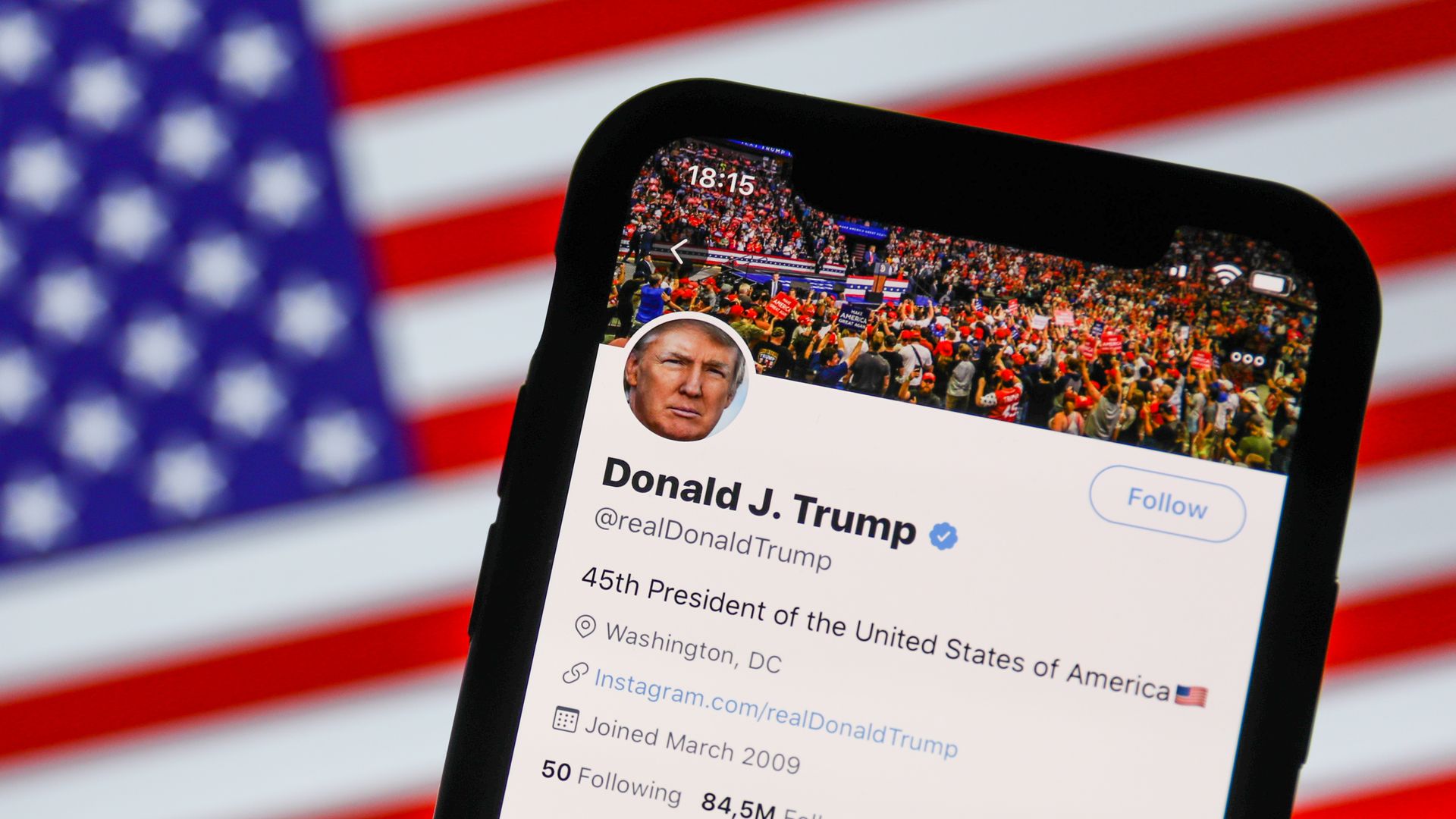Trump asks Supreme Court to let him block Twitter critics
Add Axios as your preferred source to
see more of our stories on Google.

Photo: Jakub Porzycki/NurPhoto via Getty Images
The Trump administration Thursday asked the U.S. Supreme Court to overturn a lower-court ruling that the president can't block critics on Twitter because doing so violates the First Amendment.
The big picture: Trump's use of Twitter has been a defining feature of his presidency, with his habit of often posting and retweeting inflammatory and misleading content. Despite the earlier ruling and Twitter becoming more willing to push back on his false tweets, Trump largely has free rein on the platform.
The other side: The Justice Department, arguing on behalf of the government, says in a brief that allowing the ruling to stand would jeopardize public officials' ability to insulate their social media accounts from harassment.
- The DOJ briefing argues that Trump uses his personal account "in part to announce official actions and policies."
- "It seems likely... that this decision will have the unintended consequence of creating less speech if the social-media pages of public officials are overrun with harassment, trolling, and hate speech, which officials will be powerless to filter," the brief reads.
Backstory: The Knight First Amendment Institute first filed the case in 2017 on behalf of seven people blocked by Trump. The U.S. Court of Appeals for the Second Circuit ruled in 2018 that Trump's Twitter account is a "public forum" under the First Amendment and he cannot block speakers engaging on it due to their viewpoints.
What they're saying: The Knight Institute argues the lower court decision should remain in place.
- "Public officials across the country now use social media as their main means of communicating with their constituents," Katie Fallow, a senior staff attorney at the Knight Institute, said. "Blocking people from these forums denies them access to important information and deprives them of the opportunity to engage with the officials who represent them."
Go deeper: Trump's unexpected 1st Amendment legacy
